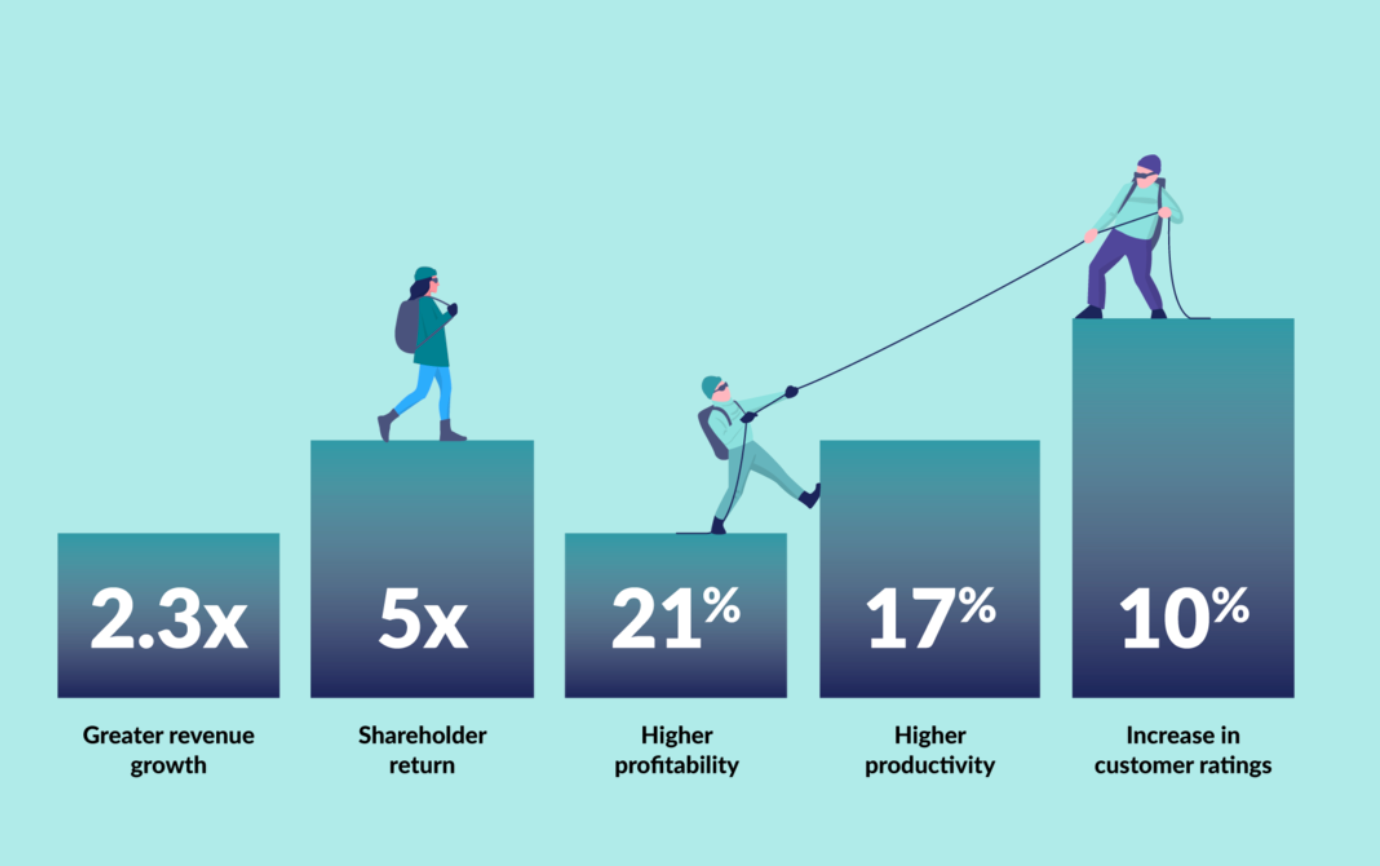Are you looking for remote software engineers to join your team? Read this post to know the best practices for interviewing software engineers remotely to streamline the hiring process.
Software engineers should possess a multitude of technical and soft skills to be considered qualified, hireable, and desirable.
Examples of technical or hard skills candidates need are coding, computer programming, software developments, object-oriented design or OOD, and software testing and debugging.
Software engineers should also have important soft skills that will make them valuable and reliable new members of your team. These include good communication skills, the ability to multitask, and paying great attention to detail.
You’ll know immediately if applicants have the hard and soft skills you’re looking for when you go over their CVs and application forms.
You can also evaluate the level of expertise and quality of each candidate’s hard and soft skills when you interview them.
The top providers of IT staffing solutions say that asking the right questions during the interview will give you a clearer picture of the applicant’s capabilities and potential. As a result, you will be in a better position to decide whether the new candidate will fit into the role and company culture or not.
Challenges of Conducting Remote Interviews With Software Engineers
Conducting face-to-face interviews with software engineers can be daunting since doing it incorrectly can cause you to hire the wrong candidate. This, in turn, can lead to delayed projects, frustrated team members and clients, and a waste of time and money.
Interviewing remote applicants for this same position can be more difficult since this type of setup comes with more challenges.
Technical glitches, such as poor Internet connection and audio and video quality, can ruin the smooth flow of a job interview.
Moreover, online interviews do not come with the high level of engagement that face-to-face ones offer. Because of this, it can be harder to read a candidate’s body language and get a better sense of their interpersonal skills.
Additionally, virtual job interviews usually require more effort and time since you’ll have to clarify and paraphrase your questions frequently to make sure you get the right amount of accurate information from the candidate.
The pressure to find the ideal applicants, plus these online interview challenges, can make it difficult for you to go through the process efficiently and hire the most suitable candidates to add to your team.
Also read: Guide to conducting & attending Remote Interviews
Best Practices & Tips for Interviewing Software Engineers Remotely
The right virtual job interview practices and techniques can help you go through the process successfully and hire the best candidates that fit the role and your company culture.
Below are seven of the best practices and additional tips you can follow for conducting online interviews with software engineers:
-
Provide candidates with as many details as possible about their interview.
In the past, most job interviews followed a structured format, which means recruiters or hiring managers prepared a set of questions to ask all applicants.
Many interviews also followed the unstructured format wherein the recruiters or hiring managers have some general questions in mind but only ask a few and allow the candidates to talk more.
Presently, most job interviews are a combination of structured and unstructured formats. This type allows recruiters and hiring managers to still have control of the process yet enable them to know the candidate on a deeper level through the longer answers they provide.
If you tend to follow the combination format, you will do well to give the candidates as much information as you can about their upcoming interview so that they’ll know what to expect and be in their best form.
Aside from providing the time, the number of interviewers, the video conferencing tool to use, and login details, include in your email invitation the purpose of the interview.
Also, prepare a write-up on the essential skills candidates should have and how you evaluate them. Include these in the email invitation as well.
Sharing these details beforehand allows you to help the candidates prepare for and be more relaxed and confident during their interview.
And this will enable you to conduct an efficient, smooth-flowing interview that will help you decide the best talent to hire.
Also read: Technical Interview Questions | Top 30 critical questions to ask before you hire!
1. Research your candidates
During virtual job interviews, you want to be at the top of your game. You won’t be able to do this if you don’t know anything about the candidates.
As such, go over the CV of each job applicant. Pay attention to their past two to three years of work, particularly their roles and responsibilities.
Make sure you look at each candidate’s LinkedIn profile and go over their work samples. These tools allow you to get more details about their technical background.
You can also start speaking with the references of your top applicants so that you can have a better picture of their areas of expertise and professionalism.
Knowing the candidates on a deeper level shows that you are taking them and the interview seriously and that you are a thorough professional. And this will reflect well on your organisation.
2. Prepare well for the interview
Maintaining an air of professionalism throughout the meeting requires additional prep work on your part.
These should include the following:
- Choosing an appropriate room or space in your home or office free of noise, distraction, and clutter where you can conduct an efficient, smooth job interview.
- Having everything you need for the interview, such as the candidates’ CVs, a properly functioning headset, stable Wi-Fi connection, charger, etc.
- Preparing your list of interview questions.
- Ensuring you know the specific job title and level and team the candidate is being considered for.
Preparing for the job interview also entails making sure the device and platform you will use work perfectly. As such, familiarise yourself with the video conferencing tool to be used and test its video and audio quality at least twice to avoid awkward delays and frozen screens.
3. Choose questions that allow you to evaluate a candidate’s technical skills
Making a list of interview questions is a crucial part of the preparation process. Doing so ensures you ask the right ones that can help you know and evaluate a candidate better.
Asking the right questions during the interview is also a sign of your professionalism. It keeps the candidate engaged and interested in the process, your organisation, and what you have to offer.
To assess the technical skills and capabilities of candidates, here are some questions you can ask:
- How many years have you been working as a software engineer?
- What are your areas of expertise in programming?
- What do you like and dislike about your job as a software engineer?
- Are you stronger as a front-end or back-end developer?
- What technology or area in software development excites you at the moment?
These questions can help you evaluate if the candidate is technically capable of handling the position or not.
The best answers would include explanations of their experiences and relevant technical skills they used or relied on.
Also read: 25 Highest paying remote jobs | Best work from home jobs
4. Prepare questions that let you gauge a candidate’s soft skills.
Assessing an applicant’s soft skills is just as important as evaluating their technical ones.
Knowing their soft skills, core values, leadership potential and qualities, and general cognitive ability can help you evaluate if a candidate is a great fit for your company and can be a loyal and reliable employee for a long time.
To evaluate the soft skills, core values match, general cognitive ability, and leadership potential and qualities of a candidate, include these questions on your list:
- Is there any new skill you are working on or want to learn?
- What is the biggest challenge you had to solve and how did you handle it?
- Were you even given the opportunity to think of an out-of-the-box idea to solve a challenging problem, and what happened?
- Was there a time when you had to pick up and learn new technology quickly, and what was the outcome?
- How do you deal with difficult clients and team members?
- What is your favourite workplace and team dynamic?
- Was there a time when you had to step up into a leadership role and what was the result?
- What are you looking for in your next role?
- Where do you see your career in the next five years?
Candidates whose answers give you an assurance that they are interested in learning new things, comfortable working with people and dealing with changes, and confident with handling and overcoming obstacles are ready to take on higher or leadership positions.
Also read: Welcome kit ideas | Best 30 trending gift ideas of all time!
5. Give the candidate time to ask questions
No matter how long a virtual or face-to-face Job interview is, the candidate shouldn’t only be allowed to answer questions.
All candidates should also be given a chance to ask questions.
Keep in mind that software engineers are highly sought-after professionals. Because of this, they often have several employment opportunities to choose from.
As such, during interviews, software engineers are also evaluating you, your team, and your organisation. Giving the candidates only the last five or 10 minutes to ask you questions when both of you may already be rushing to end the call won’t give them enough time to do this.
And when the candidates do not get the chance to know more about your organisation, they might become more hesitant to accept your offer if you decide to hire them.
Additionally, when you don’t let candidates ask questions, you won’t get an idea of what’s important to them. And because of this, you won’t be able to make an offer that they would find attractive and worth taking.
Also read: What is your work style? | 10 tips on how to answer work style questions
6. End the interview with the candidate excited to join your team
The last few minutes of the interview is the perfect time for you to make a pitch about the position and your organisation.
Talk about why you are happy to be with the company and what inspires you to work every day. Also, provide some details about the impact you have created in the company so far and what your next projects are.
Although you want to “sell” your company, be honest and avoid exaggerating. Stick to the facts, but highlight the perks of being part of the organisation.
Make sure you also speak with genuine enthusiasm to inspire and get the candidate excited about joining the company.
Remote job interviews can be stressful for both the interviewer and interviewee.
When you follow these practices, you can ensure a win-win situation for both you, your organisation, and new software engineers.








